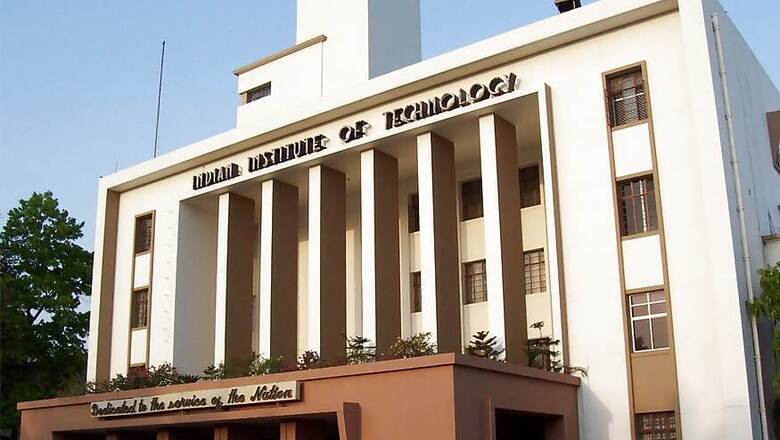
views
Amid nationwide protests over ban on Chinese goods following Galwan Valley standoff in Ladakh, the IIT Alumni Council on Tuesday announced elimination of Chinese systems and software in all its initiatives. It plans to replace the Chinese software with indigenous and low-cost technology in all its initiatives, including Megalab.
MegaLab is an initiative of the Council to establish the largest genetic testing laboratory in Mumbai for coronavirus and other infectious diseases that would carry out over 1 crore tests per month. The lab is all set to launch on August 15.
The decision taken by the IIT Alumni Council came a day after the Union Home Ministry announced ban on 59 Chinese applications in India including TikTok.
Over the last few weeks, the IIT Alumni Council has been working actively with various technical institutes of excellence, research institutions in order to develop indigenous and cost-effective solutions to replace the Chinese systems.
These include an initiative with IIT Roorkee to recycle all the plastic disposables used in the RTPCR process including viral sample tubes, sample plates and pipette tips which are consumed in large quantities adding to bio hazardous waste challenges as well as hard currency imports.
The Institute of Chemical Technology (ICT), Mumbai has also come forward and worked on designing and piloting an indigenous technology in line with indigenous capital goods for mass production of the RTPCR 2.0 test kits for the much-awaited MegaLab.
President and Chief Volunteer of the IIT Alumni Council, Ravi Sharma reemphasised on Prime Minister Narendra Modi's appeal for going local and said, "We fully support the Centre's decision to ban Chinese Apps and therefore we have also decided not to use any Chinese software and systems. We had already started work for indigenous development of requisite systems and software after the appeal of Prime Minister for Atmanirbhar Bharat."
"We are confident that we shall be able to present world class systems and software with support of the global IIT Alumni community as well as the partner Institutions like Mumbai University and ICT Mumbai that are known for their technology supremacy worldwide. We are also sure that we shall not only achieve the goal of self-sufficiency for all our initiatives but would also export our software and testing systems to other parts of the world. We hope to compete with China head-on in markets around the world," he said.
Vice Chairman of Packaging Industry Association of India (PIAI), Pawan Kumar also supported the government's decision on banning Chinese apps and said, "I am happy to be part of IIT Alumni Council’s support for indigenous software and systems. I believe that the Indian software industry is well geared to win in any market on a level playing field. In the current context, I am more than sure that Indian software and system makers will rise to the occasion and soon present indigenous alternatives to the Indian as well as global market."
On June 15, as many as 20 Indian soldiers including the Commanding Officer of a battalion at Galwan valley were killed by the Chinese soldiers in a violent clash during disengagement.
Indian and Chinese troops have disengaged at the Galwan Valley area in Ladakh where they had earlier clashed on the night of June 15-16. At least 17 Indian troops, who were critically injured during the clash, were exposed to sub-zero temperatures in the high altitude terrain and succumbed to their injuries later.
Data Security Working Group of IIT Alumni Council and former ADG in-charge of Karnataka Police Computer Wing, Sanjay Sahay, said that Chinese systems were posing high risks to the country. "Chinese software and apps are prone to malware and it is becoming security and privacy risks for our country. There have been concerns of security as well privacy with quite a few Chinese apps and software. I feel, banning of Chinese apps is a step in the right direction," he said.




















Comments
0 comment